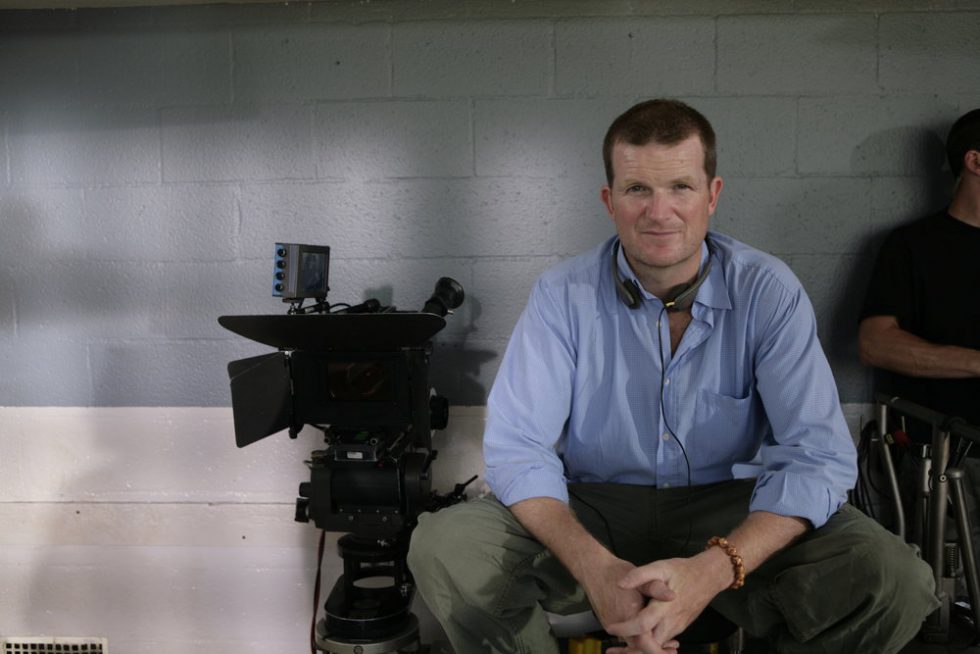
Джесси В. Джонсон обожает кино. Работая на различных уровнях кинопроизводства с начала 1990-х, кинорежиссёр английского происхождения впервые сделал себе имя в каскадёрской профессии, приняв участие в таких громких проектах, как оригинальный "Вспомнить всё", "Звёздный десант", "Война миров" и ещё десятках других. Это привело к тому, что Джонсон стал координатором трюков, режиссёром второго подразделения и, в итоге, дорос до опытного режиссёра полнометражных фильмов. Оставшись верным своему трюковому опыту, Джонсон поставил целый ряд фильмов, - в числе которых "Коллекторы", "Тройная угроза" и "Отмщение", - добротно нашпигованных экшн-сценами (и это лишь некоторые из них), и отдающих предпочтение практическим эффектам и физическим возможностям актёров, нежели дорогостоящему зрелищу, перегруженному CGI.
Пройдя весь этот долгий, тернистый путь, и став одной из ключевых фигур в производстве экшн-фильмов, по мнению истинных ценителей жанра, он никогда не терял своей любви к кино. Сей факт совершенно очевиден, если взглянуть на его последнюю, на данный момент, работу, мрачный триллер о Второй мировой войне, "В Аду нет ярости" (в российском прокате "Аве Мария")
Фильм рассказывает историю ожесточённого трёхстороннего конфликта вокруг тайника со спрятанным нацистским золотом, разгоревшегося в последние дни войны между разношёрстной группой американских солдат, стремящихся разбогатеть, дезертировавшими немецкими офицерами и бойцами французского сопротивления, невольно оказавшимися в эпицентре событий. "В Аду нет ярости" полон головокружительных трюков, которые определили так много в карьере Джонсона, но помимо этого есть сильная история в сочетании с великолепной игрой талантливых актёров, и всё это было превращено его уверенной и опытной режиссёрской рукой в поистине кинематографический опыт.
Недавно у меня была возможность поговорить с Джесси В. Джонсоном об этом фильме, но из-за его ожидаемой откровенности, наш продолжительный разговор в итоге охватил не только его новую работу, но и философию кинопроизводства, разговоры о кумирах, мнение о состоянии современного кинопроизводства и много чего ещё. Однако, в каждый момент нашей беседы, любовь Джонсона к кино просвечивалась более чем явно.
Как Вы поняли, что "В Аду нет ярости" станет вашим следующим проектом?
Джесси Джонсон: Когда начался COVID, у меня было предчувствие… Прошло около месяца, с тех пор, как я обосновался у себя на огороде и полностью переключился на сельское хозяйство, поскольку не знал, как долго всё это продлится. Но было прикольно, мне скорее нравится идея выращивать собственную кукурузу, помидоры и лук. В общем, я не знал, будет ли это пандемия уровня "Безумный Макс", или же что-то менее масштабное. Итак, примерно через три или четыре недели после того, как мне наскучило выращивать овощи и подвергаться нападениям гусениц, я запросил сценарии с минимальными локациями и минимальным актёрским составом, у которых не было вложений. Я довольно часто такое практикую.
Меня тянет к действию. Меня привлекают драматические ситуации и люди, доведённые до предела своих физических возможностей. У нас было где-то около сорока пяти сценариев, которые заняли первое место в списке. Мой менеджер, я сам, мои помощники, в то время у меня было два помощника, мы читали первые пятнадцать-двадцать страниц, и обычно ты сразу чувствуешь, оно это, или нет. Если нет, ты просто двигаешься дальше. Так что, это не такой уж большой подвиг - пройти через целую кипу сценариев.
И мы как-то так очень быстро заметили, что используем сценарий "В Аду нет ярости" в качестве ориентира. "Это лучше, чем "В Аду нет ярости?"" "Нет, идём дальше". И, наконец, мы сказали: "Всё, снимаем "В Аду нет ярости". Сценарий был написан на французском языке и переведён довольно грубо, но всё же основная сюжетная канва была очень, очень интересной и по-настоящему пронизывающей. Итак, у меня был на руках этот сценарий, и далее я занялся вопросами финансирования, которые вряд ли смог бы утрясти, не случись эта пандемия. Но даже несмотря на пандемию, тебе хочется снимать кино. Ты хочешь продолжать работать, рвёшься в бой, так сказать, и я был услышан, это сработало. По сути, финансист был готов снимать любой фильм, где он мог бы задействовать джип времён Второй мировой войны. Ему очень, очень нужен был этот джип, чтобы списать его как часть производственных затрат. Так что, я сказал: "Думаю, у меня есть идеальный фильм". И, таким образом, мы втиснулись в эти жёсткие рамки.
Мы снимали в очень, очень отдалённом месте, там не было ни Интернета, ни сотовой связи. Что касается подбора актёров, я взял всех друзей, с которыми работал ранее, людей, которые, как я знал, были готовы пройти такое испытание на выносливость, потому что это тяжело, по правде говоря. Целыми днями на жаре и в пыли. Снимать такой фильм - это очень, очень тяжёлая работа. Это каждодневное испытание на физическую выносливость. На Нине шёлковая сорочка. Ей пришлось побрить голову. Все получают ожоги, порезы, занозы. Это тяжело. Это часть игры, и она направлена на развитие характера. Но всё равно для этого нужны были люди определённого типа, и это были люди, с которыми я работал раньше. Я позвонил им всем, и все однозначно ответили "да".
Это была одна из тех прекрасных возможностей, когда тебе удаётся поработать с очень близкими друзьями. Разумеется, мы изолировались в целях безопасности для здоровья, и никто не мог уехать. Посетителей не было, каждый день проводились медицинские осмотры, анализы, измерялась температура и всё в таком духе. Короче, вся стандартная фигня - обеды доставлялись в пластиковых контейнерах. Но это был великолепный, просто потрясающий опыт съёмок. Я думаю, это заметно, поскольку все, кто находились там в тот момент, жили почти так, как если бы всё это реально происходило в 1940-е годы. Никто не обновляет Instagram или Facebook на своём телефоне, и не занимается другой подобной хренью, которая только отвлекает. Они проживали этот конкретный момент. Лично мне весь съёмочный процесс казался чем-то поистине волнующим, захватывающим и вдохновляющим.
Мне понравилось, что в этом фильме, так или иначе, задействованы люди, с которыми Вы уже работали ранее. Это как собственная актёрская труппа. Ещё мне очень понравился отчаянный характер истории и исполнение. Я также упомянул в своём обзоре, что это напомнило мне работы режиссёра Сэма Пекинпа. Я описал это, как: "…мрачную, остросюжетную историю, которая как-бы является некой данью уважения фильму "Принесите мне голову Альфредо Гарсиа", с той лишь разницей, что события картины разворачиваются в военное время, и каждый участник такой же потный и отчаянный, как главный герой Уоррена Оутса…"
Джонсон: О, это чудесно. До чего же добрые и лестные слова. Многие люди не восприняли бы это, как комплимент, однако это самый высокий комплимент, который я только мог получить в свой адрес. По правде говоря, это одна из самых моих любимых его картин. Обычно, все ссылаются на чуть более отполированные его работы, вроде "Дикой банды", "Скачи по горам" или "Побега". Но лично для меня самой личной, самой прозрачной, грубой и бесстрашной всегда была именно эта картина, мне нравится сама её текстура и жизненная сила, а на втором месте у меня "Пэт Гэррет и Билли Кид". Это просто высшая похвала для меня. Он один из моих абсолютных фаворитов. У меня собрано девять его биографий и различных исследований, касательно его и его работ.
Правда?
Джонсон: Да. Это забавно. У меня дома целая полка заставлена биографиями, исследованиями и справочниками Сэма Пекинпа. Он мой абсолютный Бог. К сожалению, всякий раз, когда читаешь биографию Пекинпа, ты почти безмерно подавлен последним годом его жизни, когда он напивался до беспамятства, чего я сам надеюсь не повторить.
(Оба смеются)
Джонсон: Думаю, если вы только-только знакомитесь с Пекинпа, начать стоит с "Бегства", "Дикой банды" и даже "Молодого Боннера", - с этих картин. Но только когда вы по-настоящему изучите его и поймёте, как этот человек мыслит и творит… что представляет собой его искусство, как его карандаш скользит по бумаге, вы полюбите и эти более личные, менее эффектные картины, где на экране буквально только он просвечивает сквозь персонажей. Так что, я расцениваю это как высочайший комплимент.
Я рад. "В Аду нет ярости" изобилует большим количеством впечатляющих трюков. Полагаю, было непросто воплотить всё это на экране, учитывая те ограничения, которыми вы были связаны?
Джонсон: Ты абсолютно прав. Это очень, очень трудно осуществить без необходимого опыта и мер безопасности, равно как и без квалифицированных людей, выполняющих всю работу и занимающихся постановкой трюков. К счастью, в данном случае, имея в своём распоряжении актёрский состав, с которым мне приходилось работать ранее, я уже знал их навыки и уровень подготовки. Мне очень повезло с Люком Лафонтейном, он тоже играет роль в этом фильме, но, помимо этого, он двадцать лет был моим хореографом, и он один из лучших в Голливуде, если не во всём мире. Плюс, в качестве вишенки на торте, у меня был Дэниел Бернхардт, который, возможно, входит в десятку лучших хореографов и каскадёров, работающих в настоящий момент в Голливуде, взять ту же "Взрывную блондинку", "Джона Уика" и "Никто". Так что, для этой картины у нас подобралась необычайно талантливая команда каскадёров, и если в ином случае это было бы сущим кошмаром - всегда приходилось обучать людей, показывать им, как пользоваться огнестрельным оружием, как двигаться, как правильно падать, - эта команда уже делала такое неоднократно. Я знал, что все эти ребята будут в какой-то степени заботиться и друг о друге. Работая над экшн-сценами, я чувствую себя намного спокойнее, если рядом люди, которые точно знают, что делают, и также очень хорошо понимают, как обезопасить себя и всю съёмочную группу. Даже в этом аспекте потребовалось очень много планирования и подготовки.
Я также предпочитаю снимать с нескольких камер и делать опасные трюки как можно реже, такой метод помогает работать оперативнее. Но это были очень-очень захватывающие съёмки, и каждый внёс свой вклад в сцены экшна. Я даже был одним из офицеров СС в этом фильме, которого взорвали и застрелили. Я сделал сальто назад в могилу, чего мне уж точно не следовало делать. Но я не хотел, чтобы это делал кто-то другой, так как это была довольно серьёзная корректировка трюка, если бы мы делали это в обычном фильме. Поэтому, я и проявил инициативу. Мне уже приходилось делать такое раньше. Это меня сбила машина в "Отмщении". Вы можете увидеть это в трейлере. Мы работали с той актрисой, она отлично справилась со всеми сценами, где ей нужно было бежать, и её наняли, чтобы снять автомобильную аварию в Лондоне. Когда мы уже дошли до этой сцены, она бросила взгляд на машину, затем на дорогу, затем посмотрела на нас и сказала: "Нет. Я пас." И что делать в такой ситуации? Вы же не можете заставить кого-то что-либо делать против его воли. Поэтому, мы сняли аварию позже в Шерман-Окс, в Калифорнии. Мы перевернули плёнку так, чтобы казалось, будто машины едут по противоположной стороне дороги. Но это было довольно нервозно. Вначале я не разбил лобовое стекло, а перелетел через машину, приземлившись на проезжую часть, и это было самое болезненное, что я когда-либо испытывал, выполняя трюк. Но со второй попытки мне, всё-таки, удалось его разбить, и, естественно, по сравнению с первым дублем, мне казалось, словно я приземлился на кровать.
Ух ты! Подумать только.
Джонсон: Как бы то ни было, самое забавное, что когда я снимал "В Аду нет ярости", я вообще не воспринимал его, как боевик. Я думал, что это просто потрясающая драма с потрясающей главной героиней, Мари, в исполнении Нины Бергман, которая получилась многослойной и глубокой, и у неё была масса причин делать то, что она делала, она казалась загадочной. Читая сценарий минут двадцать, мы всё не могли понять, кто был в этой истории плохим парнем, кто были хорошие парни, кому мы должны сопереживать, и именно это меня вдохновило. Даже когда я продавал фильм, я рассматривал его, как драму, и продолжал говорить людям об этом. Кое-кто из съёмочной группы даже сказал: "Мы собирались отказаться от этого фильма, потому что, судя по Вашим словам, решили, что это драма. А когда мы все посмотрели его, в нём оказалось столько же экшна и насилия, сколько и в других Ваших фильмах." Мне пришлось пересмотреть его и сказать: "Да, пожалуй, и правда перебор (смеётся)."
Это, несомненно, уровень гонконгских фильмов конца 80-х годов, с перестрелками и кучей выстрелов: кстати, очень даже в стиле Джона Ву.
Джонсон: Интересно. Его работы я тоже люблю. Я обожаю ранние фильмы Джона Ву, и мне импонирует, что он начинал с комедий, а затем совершил прорыв, став режиссёром-постановщиком, и, как следствие, был вынужден держать эту планку до конца своей карьеры. Я нахожу это очень интересным. Но его, в свою очередь, очень вдохновляли фильмы Жана-Пьера Мельвиля: "Боб - прожигатель жизни", "Красный круг", "Самурай". Он один из моих абсолютных кинобогов. Поэтому, я отчётливо вижу исходный материал, когда смотрю картины Джона. Безусловно, в плане экшна, Ву сделал удивительные вещи, которые никто не делал до него, и до сих пор никто не приблизился к его уровню. Но интересно видеть режиссёрское влияние Ву на мои работы так же отчётливо, как и влияние Мельвиля на него самого.
Думаю, если ты с таким трепетом относишься к кино, и полностью в него погружаешься, то эта любовь также проявляется в твоей итоговой работе. На мой взгляд, это одна из тех причин, по которой люди действительно начинают открывать для себя и ценить твои фильмы. И та любовь к кино, которая в Вас явно присутствует, видна невооружённым взглядом. Другой аспект заключается в том, что мы живём в такую эпоху, когда фильмы стали просто до неприличия масштабными и дорогими. И по этой причине, часть зрителей в наши дни жаждет пускай и небольших, но более личных фильмов, которые всё ещё могут задеть за живое.
Джонсон: Да, безусловно, что-то в этом есть. Я думаю, ты прав - есть часть зрителей, которая хочет получить продукт ручной работы. Ты, конечно, можешь потратить шестьсот тысяч долларов на "Феррари", которую в состоянии купить любой другой человек, если ему это по карману, и да, это круто, это классно. Но это так же безлично, как тот же Биг Мак из Макдоналдса. Или же ты можешь приобрети автомобиль на заказ, собранный специально для тебя, за половину той же стоимости, но это будет нечто уникальное, особенное, интересное, уже чувствуется разница, это говорит о создателе, это говорит о дизайнере, о людях, которые тестировали автомобиль, и я искренне верю в это. Чтобы вы знали, я люблю "Феррари", просто обожаю. Но сколько всего можно сказать о чём-то таком, что выглядит будто-то бы изготовленным на заказ и не соответствует никакому набору правил. Я думаю, каждый большой фильм, который вы смотрите сегодня, за очень редким исключением, не смог избежать влияния руководителей, которые сами никогда не снимали фильмов, и не имея творческой жилки, влияют на итоговый продукт.
Таким образом, все острые углы сглаживаются. Фильмы становятся похожими друг на друга. Достаточно просто взять список из пятнадцати, двадцати режиссёров, и любой из них мог бы снять нечто подобное, потому что такие фильмы представляют собой просто смесь решений разных людей, основанных на финансировании, окупаемости, на том, что можно будет эффективно продать. И это всегда присутствовало в фильмах ещё с 1908 года, это было частью процесса создания определённых фильмов. Но я правда очень стараюсь снимать личные картины… картины с моим фирменным почерком. По большому счёту, я снимаю фильмы для себя. Я чувствую, что у меня неплохой вкус "синих воротничков". Я смотрел много разных фильмов, но особенно я люблю возвращаться к фильмам, привлекавшим аудиторию "синих воротничков" в 50-е, 60-е и 70-е годы. У меня не особенно выдающийся вкус, не знаю есть ли смысл их перечислять?
Конечно.
Джонсон: Я действительно стараюсь иметь широкий спектр знаний о кино. Но если вы посмотрите на фильмы, которые я люблю, то увидите, что ранние картины Пекинпа имели огромный успех у массовой аудитории. Картины Мельвиля в какой-то степени имели успех у более широкой аудитории. Говард Хоукс и Джон Форд - два моих кинобога, и их фильмы пользовались необычайным успехом у зрителей. Но они творили в 50-е, 60-е годы, и я не думаю, что человеческий разум так уж сильно изменился. Нам всё ещё хочется тех же форм развлечения. Но что для меня важно, так это то, что на мои собственные картины влияют не только те фильмы, что были сняты за последние десять, двадцать лет.
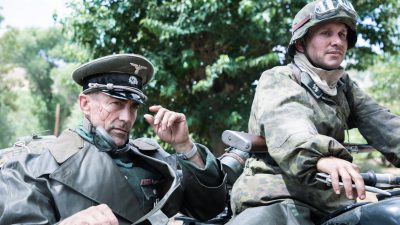
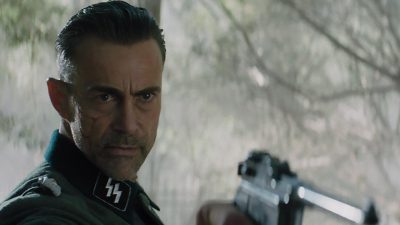
И это действительно важно, поскольку я считаю это недостатком многих представителей молодого поколения кинематографистов. Такое чувство, что людям реально не хватает знаний об истории кино. Те, кто причисляют себя к "любителям кино", на самом деле, могут назвать лишь несколько фильмов, вышедших за последние тридцать лет. Они не копают глубже и не пытаются что-то постичь из фильмов прошлого. Я думаю, это только вредит ремеслу.
Джонсон: Вот то-то и оно, смекаешь? Это интересно. Я не думаю, что ты можешь называть себя режиссёром, пока по-настоящему не изучишь процесс создания фильмов, фильмов, уходящих корнями, по крайней мере, к эпохе немого кино. Не обязательно досконально изучать ту эпоху, поскольку это совсем другая форма кинопроизводства. Но ознакомиться с ней, всё-таки, стоит. Посмотрите, к примеру, "Крылья", первый фильм, получивший премию "Оскар" в номинации "Лучший фильм". Вообще-то, сначала он был снят без звука, а потом уже появилась звуковая дорожка. Но посмотрев эти картины и поняв их, вы поймёте и то, что язык кино развивался с удивительной скоростью, ты, как-бы, перескакиваешь из одной эпохи в другую, и постигаешь столько всего… столько всего.
Я даже чисто визуально могу определить фильмы, основанные на картинах последних десяти, двадцати лет. Все они буквально пропитаны духом "Матрицы", "Криминального чтива" и так далее. Это сразу бросается в глаза, и ты такой зеваешь и говоришь про себя: "Скука. Знаю я, откуда ноги растут. Без влияния Гая Ричи тут не обошлось. И это здорово, круто, классно, интересно, но твой фильм, в лучшем случае, будет поверхностным". Ладно, хватит об этом (смеётся). Продолжим обсуждать "В Аду нет ярости".
Возвращаясь к актёрскому составу, хочу отметить, что одним из новых людей, которых Вы привели в свою "труппу", стал Дэниел Бернхардт. Я всегда считал его недооценённым фанатами жанра. Поэтому, было здорово увидеть, что у него здесь такая нетипичная и значимая роль. Как он попал в этот проект?
Джонсон: Я лично встретился с Дэниелом, и могу сказать тебе, что этот парень оказался одним из самых приятных, искренних и умных людей, которых я когда-либо встречал. Мы проговорили около трёх с половиной часов, и мне было по кайфу даже просто общаться с ним. Он говорил что-то вроде: "Я помогу Вам с трюками. Надену усы и бороду." Я подумал: "Да-да, конечно, не вопрос". В общем, это оказалась весьма приятная встреча, которая произвела на меня исключительно положительное впечатление. Но что ещё более важно, пообщавшись с другими людьми, я понял, что все его слова об отсутствии эго и желании просто присоединиться к каскадёрам и сделать всё, что от него потребуется, были чистой правдой. Я был так впечатлён этим, поскольку, даже являясь каскадёром, он, на данный момент, достиг высочайшего уровня, выступая в качестве оппонента, и ставя хореографию к боям с Шарлиз Терон и Киану Ривза.
Когда это произошло и ударил COVID, была только одна роль, на которую я не мог подписать никого из своей акционерной компании. Всех остальных персонажей фильма уже были готовы воплотить на экране мои друзья, за исключением роли фон Брюкнера, штурмбаннфюрера СС. И тогда я, наконец, встретился с Бернхардтом, он знает французский, английский, немецкий. Я позвонил ему, и мы поговорили об этом персонаже. Бог ты мой, до чего же он круто сыграл! Я так восхищён его работой. По-моему, он просто великолепен.
Полностью согласен.
Джонсон: Не хочу спойлерить, скажу лишь, что этот персонаж, возможно, один из самых чутких в фильме, и, конечно, люди скажут: "Боже мой, но он нацист". Вы должны посмотреть фильм, чтобы понять, о чём я говорю. Он действует в соответствии со своими планами, но, по правде говоря, он единственный, кто проявляет хоть какое-то сострадание. Это очень сложная роль. Это не просто злодей, вставленный в фильм, чтобы там быть. Он плохой парень, который считает себя хорошим, что очень непросто сыграть, и Дэниел блестяще справился, что просто не может меня не впечатлять. Надеюсь, это поспособствует развитию его карьеры, и он начнёт играть гораздо более сложные, интересные и насыщенные роли. Искренне надеюсь, что Чад Стахелски и Дэвид Литч увидят это и скажут: "Бог ты мой. Всё это время он работал на нас, а мы давали ему лишь второстепенные роли". И они, наконец, предложат ему что-то стоящее, поскольку я очень-очень благодарен ему за проделанную работу.
Он феноменален. Меня не покидает мысль, что в любой момент его карьера может неожиданно пойти в гору, потому что столько лет он так высоко держал планку, но всё это время "оставался в тени".
Джонсон: Не сомневаюсь, у него точно всё сложится. Он делает очень, очень серьёзную работу. Именно он привёл всех каскадёров из 87eleven. Все, кто снимается в этом фильме, кого вы видите падающим на землю или подлетающим от взрыва, это всё ребята из его команды, которые пришли, потому что он там снимался. Разумеется, Люк, мой постоянный координатор, привёл довольно много знакомых лиц, но подавляющее большинство каскадёров пришли из 87eleven благодаря Дэниелу. И мы были этому несказанно рады. Дэниел подсуетился и немного помог с ножевым боем возле джипа между Тимом Мёрфи и тем немцем, бой был довольно свирепый, грязный и по итогу выглядел реалистично. Но тут нужно тщательно продумывать хореографию. Если хочешь выглядеть реалистично и грязно, требуется больше хореографии, нежели в ином случае, когда всё мягко и гладко - вот такая вот ирония кино.
Так и есть. Всё это требует работы, планирования и серьёзного мозгового штурма.
Джонсон: Финальный бой в "Отмщении", который должен был выглядеть так же… возможно, был одним из самых отрепетированных, продуманных и заранее спланированных из всего, что мы со Скоттом Эдкинсом когда-либо делали, он более грязный и менее стилизованный. Вообще, с боевыми стилями всегда так забавно выходит. Чистый бой, демонстрирующий традиционное боевое искусство, намного легче отрабатывать. У всего, что связано с подобными боями, есть название и техника, чего не скажешь о реальных драках.
И снова очень верно подмечено. Не хочу менять тему, но мы с Вами не общались с тех пор, как пресса собиралась в связи с выходом "Отмщения". Просто хотел спросить, каково это - видеть такой положительный отклик на этот пост-релиз?
Джонсон: О, замечательно. Просто замечательно. И мне, и Скотту чертовски приятен тот факт, что людей зацепило… У фильма теперь куча последователей. Это невероятно. И эффект от фильма оказался настолько сильным, что люди затем посмотрели ещё и обе части "Коллекторов" и тоже полюбили их. Они увидели, как зарождаются характер и стиль. Вообще, люди такие забавные - сначала они просят о вещах, которых не видели раньше: "Дай нам что-нибудь новенькое, Голливуд. Давай, удиви нас уже чем-нибудь". А как только это получают, они тут же воротят нос. Но потом, в тот момент, когда они начинают к тебе привыкать, за тобой тянутся толпы последователей. Людям нравится Скотт, он нравится им в ироничном амплуа, с этим мрачноватым чувством юмора, злобным и грубоватым, но это, как наблюдать за вашим ворчливым дядей, и зрителям такое по душе.
"Отмщение", на мой взгляд, стал большим ломом, открывшим эту дверь. У Скотта уже было огромное количество последователей на Ближнем Востоке, благодаря серии фильмов "Неоспоримый", но это было не то. А сейчас у него уже совсем иная армия последователей, которая появилась после "Отмщения". И, как и в случае с Дэниелом, я надеюсь, люди начнут замечать, что Скотт действительно умеет играть. Что я хочу сделать со Скоттом, так это поставить его в один ряд с актёрами категории "A", чтобы люди были вынуждены признать его таким, какой он есть, а это феноменальное присутствие и сущность на экране, и я знаю, что он может потягаться с любым из этих парней. Я работал с ними со всеми в качестве каскадёра или режиссёра, и не вижу никаких причин, по которым Скотт должен был сниматься в этих малобюджетных фильмах. Это расстраивает меня, потому что многие из них сделаны не с такой тщательностью и вниманием, как "Отмщение". Но в любом случае, я бы пригласил Скотта и в свой новый фильм "В Аду нет ярости", если бы он не был в Англии, ведь, как вы знаете, во время COVID'а всё было закрыто, поэтому нам пришлось положиться на местную группу, к которой я мог обратиться. Как бы то ни было, состав получился довольно интернациональным, что было весьма интересно.
Актёрский состав фильма, на мой взгляд, просто потрясающий. Лучше и не придумаешь.
Джонсон: О, большое тебе спасибо, Мэтью. Не представляешь, как много это для меня значит, ведь ты паришься из-за фильма, весь, как на иголках, постоянно нервничаешь. Хотя, это было необычно, очень необычно. Я прочитал сценарий, причём французскую версию. Мой французский довольно тормознутый, в том смысле, что я читаю, как семилетний ребёнок. А персонаж, которого играет Доминик Ванденберг, в самом деле очень похож на Доминика, и мне пришлось перечитать сценарий несколько раз, буквально залипнуть в него, я даже проверял его через Google-переводчик, дабы убедиться, что я всё читаю правильно, а не просто проецирую своё воображение на текст. В общем, это невысокий парень с бритой головой, лицом, как у шахтёра, и огромными ручищами с мозолистыми костяшками… И моя реакция была примерно следующей: "О боже, это же Доминик. Это Доминик, которого я знаю". Потом мой двоюродный брат, француз, перевёл мне этот отрывок, и все такие: "Да, да, это один в один Доминик".
Когда мы искали актёров на эту роль, мы то и дело подходили к нему и всё упрашивали: "Дом, ну пожалуйста, сыграй ты". И я думаю, он отлично справился со своей задачей. По-моему, это лучшее, что он делал. Его слёзы настоящие, ему там отвешивают пощёчины. И, кстати, этого не видно в фильме, но я скажу тебе, что в Дома стреляли, его нещадно били, прижигали, оставляли на нём порезы и синяки. Он перенёс все мыслимые формы пыток, будь-то случайно или в рамках сцены. Он был ранен в лицо одним из циркониевых ружей. Циркониевые ружья похожи на пейнтбольные, только слегка громоздкие и стреляют пластиковым снарядом 68-го калибра с цирконием и аквариумным гравием, из-за чего в момент выстрела вспыхивает большая искра. Это отлично смотрится в кино. Мне нравится ими пользоваться, и я довольно часто использую их вместо холостых патронов. Если нужны бутафорские ружья, то я выберу циркониевые, потому что они такие красивые. Короче, его дважды ударили одним из таких ружей по лицу и голове, и для любого нормального человека это закончилось бы визитом в больницу. Я очень расстраиваюсь, когда такое происходит. Меньше всего мне хочется, чтобы кто-то пострадал на съёмочной площадке моего фильма. Но иногда такое случается, и Доминик героически выдержал это испытание, даже не знаю, как, но он буквально вжился в роль. Мне очень, очень нравится его игра в этом фильме. Он реально безбашенный.
Он и правда удивил меня, показав такой широкий актёрский диапазон. Он так часто играет несокрушимых крутых парней… потому что он такой и есть. Однако, было здорово видеть его уязвимым на экране, это наглядно демонстрирует, что он может быть и другим, если нужно. По-моему, он был просто великолепен в этой роли.
Джонсон: Спасибо огромное. Да, мне самому понравилось. Было и правда забавно наблюдать за тем, как это происходило. Нина очень усердно работала с ним. Помнишь сцену, где она хлещет его по щекам? Это была чистая импровизация. К любому другому актёру я бы отнесся очень осторожно. Доминик же обучался боевым искусствам, и получал по лицу чёрт знает сколько раз, так что за него я особо не переживал. Но я и не думал, что она собирается это сделать, всё-таки никогда не знаешь наверняка, чего ждать от человека. Но он принял это, сдержал эмоции и направил их в актёрскую игру. Он начал плакать в этой сцене, и мы использовали этот момент в фильме, если посмотришь внимательно, то увидишь истинное удивление на его лице, когда его бьют. Вообще-то, я не поощряю подобное, всё-таки я должен придерживаться сценария, но когда такое случается, а именно в тот день это случилось, ты просто принимаешь это и стараешься извлечь максимум из ситуации. Опять же, я не хочу, чтобы кто-то пострадал во время съёмок. Я всегда стараюсь этого избегать. Но в данном, конкретном случае, это здорово помогло. И я думаю, Доминик испытывал те же чувства, и был глубоко признателен, поскольку этот опыт позволил ему выйти на такой уровень актёрской игры, которого, как мне кажется, он никогда не достигал раньше.
Как Нину Бергман в итоге утвердили на роль "Мари"?
Джонсон: Актёрский состав фильма уже был утверждён, и съёмки должны были вот-вот стартовать, в очереди на роль Мари, у нас была одна актриса, получившая несколько российских премий "Оскар". У нас оставалось где-то сорок восемь часов до начала съёмок, и нужно было ещё порепетировать с актёрским составом. Дэниел выбывал из нашей команды из-за съёмок в "Матрице: Воскрешение", а Тим Мёрфи уходил в телесериал "Сквозь снег". Так что, в буквальном смысле, у нас было очень маленькое временное окно, чтобы снять фильм, закончить его и выпустить в свет. В связи с протоколами по COVID'у и прочими заморочками, людей отрывали от производства. Вот так обстояли дела, у нас были строго оговорённые даты начала и завершения съёмок. Но та актриса не потянула роль, и выбыла из актёрского состава. Поэтому, я стал умолять Нину, с которой работал над короткометражкой "Чудо-женщина" (персонаж комиксов DC), так как мы с ней давно знаем друг друга. Она уже выручала меня из беды. Она заставила меня написать сценарий, когда у меня не было ни цента в кармане после краха фондового рынка в 2008 году. Так что, в тот момент она буквально вытащила меня из ямы. Я позвонил ей и сказал: "Мне так жаль, тебе придётся это сделать… Мне нужно, чтобы кто-то попробовался на главную роль в этом фильме".
Мы не могли никого найти, потому что вся эта история с "бритьём головы" отпугивала людей, и все, кто хотел её сыграть… были потрясающие актрисы, готовые подписаться на роль, но никто из них не хотел состригать волосы. А для меня это было обязательным условием. В общем, пришла Нина, прочитала свои реплики, и каждый член актёрского состава по отдельности подошёл ко мне после того, как она дочитала и сказал: "Вы должны взять её. Вы должны взять эту женщину. Она создана для этой роли. Она и есть Мари."
Люди плакали, взрослые мужики плакали, когда она дочитала свои реплики. И, не сомневаюсь, концовка фильма, этот трогательный финал, по-разному повлияет на каждого отдельного человека. Но это так подействовало на тех крутых парней, что у них на глазах выступили слёзы, и каждый из них потом подошёл ко мне и сказал это лично. Доминик и вовсе вывел меня на улицу, толкнул в грудь, и поверьте, вы бы не хотели, чтобы Доминик проделал нечто подобное с вами…
Суровый мужик.
Джонсон: …и сказал: "Ты будешь полным идиотом, если не возьмёшь эту девчонку". А затем он развернулся и ушёл. И в этот момент я подумал, что было бы неплохо пойти к финансистам и сказать: "Слушайте, у нас осталось сорок восемь часов". И как бы то ни было, они никогда не подвергали это сомнению, иначе мы бы никогда не сняли фильм, так что, это было лучшее решение, которое пять или шесть парней когда-либо заставили меня принять.
Должен признаться, до этого я не был с ней знаком, но она произвела на меня впечатление.
Джонсон: Мы добились невероятного успеха с короткометражкой "Чудо-женщина", которую мы сняли вместе. Это было до того, как вышел официальный фильм, и ещё до того, как стало известно, что они вообще планируют его снимать. Мы набрали миллион просмотров, что в то время было просто астрономической цифрой. Телефон буквально разрывался. Меня трижды вызывали Уорнеры, чтобы поговорить с представителем DC, одним продюсером-мужчиной и дважды с кем-то ещё более высокопоставленным в иерархии, и она сказала: "Послушайте, нам нравится то, что Вы сделали, но мы никак не можем Вас нанять. Вы заинтересованы в том, чтобы ответить на несколько вопросов и быть с нами на связи, возможно, мы сможем использовать трейлер в информативном ключе?" И я сказал: "Конечно. Как Вам будет угодно."
Я дал им карт-бланш. В фильме есть кадр, который появляется в трейлере, это прямая отсылка к моему трейлеру - замедленная съёмка того, как винтовка разбивается, когда она бьёт по ней ногой. В их фильме действие происходит во времена Первой мировой войны, в моей же короткометражке показана Вторая мировая, но кадр идентичный. Наш маленький трейлер, который мы сняли, мог бы стать превью к фильму. Я ничего не имею против, и воспринимаю это, как высочайший комплимент, который только можно вообразить, так что, всё нормально. Они сразу же сказали мне, что режиссёром будет женщина, и ни за что на свете мужчина не сядет в режиссёрское кресло этого фильма. Я ни в коей мере не возражал.
Вообще-то, Нина попала на финальное пятое прослушивание на главную роль в официальном фильме "Чудо-женщина", и потом она рассказывала, что на стене их кастинг-офиса были расклеены фотографии из нашего трейлера, и она сказала им: "Это же я. Это я на фото." А они возразили: "Нет, нет, у неё чёрные волосы". А она им: "Да нет же, я покрасила волосы для съёмок трейлера". Настолько они были близки к видению нашей концепции. В Нине есть что-то такое. И всегда было. Я знал, что в ней есть энергия и сила, но для того, чтобы это проявилось, нужен определённый проект. И я думаю, что фильмы, в которых она снималась… да взять те же сиквелы "Автомобиля" и "DOOM", я видел их, они сделаны наспех, это очень… настоящему актёру требуется больше времени, чтобы вжиться в роль. Актёру нужно задать определённое направление. Необходимо сформировать уровень доверия и понимание того, что он делает, кого он играет, и предыстория должна быть предельно ясной. А Нина - методичная актриса, она вживается в персонажа, она проживает его жизнь. Затем мы много дискутируем, и в процессе этих дискуссий возникают вопросы относительно того, что происходило раньше, откуда она родом, каково её происхождение, почему она носит этот предмет одежды, почему она решила сделать такую причёску. И если у вас, как у режиссёра, есть время пообщаться со своим актёром и воплотить это на экране, то вы получите невероятный перфоманс.
Я думаю, что в случае с теми фильмами, возможно, не было приложено столько усилий для развития предыстории, и поэтому Нине сложнее раскрыться в таких условиях. Но я считаю её просто великолепной, и думаю, то, что она сделала в фильме "В Аду нет Ярости", по истине феноменально. У меня дыхание перехватывает всякий раз, когда я вижу её самоотверженность. Я довольно жёсткий режиссёр. Я не скуплюсь на слова и стараюсь изо всех сил, и это просто потрясающе - работать с кем-то, когда ты с ним синхронизирован, как это и было у нас с Ниной.
Это лишь подчёркивает то, что на мой взгляд, является важным элементом Ваших работ, и что разительно отличает Вас от других киноделов, которые работают в аналогичных бюджетных ограничениях, с аналогичными темами, а в некоторых случаях даже с теми же актёрами. Вы же скорее режиссируете актёров. То внимание и тонкость, что составляют мотивацию персонажей и образуют историю - я знаю, другие режиссёры делают всё возможное в рамках системы, но эта преданность истории часто отодвигается на второй план в попытке просто закончить фильм. Однако, по отношению к Вашим работам, у меня никогда не возникает чувства, что историей жертвуют лишь для того, чтобы отснять побольше кадров за день.
Джонсон: Потрясающий комплимент. Вообще, на первом месте у меня персонаж, а потом уже история. Мне важно знать, на что готов пойти этот персонаж, и насколько он убедителен. Моя основная задача - сидеть и слушать, что говорит актёр, наблюдать за тем, что он делает, и находить в этом правдоподобность. А из этого уже вытекает всё остальное: экшн, история, сюжет, сцены драк. Всё работает, как надо, если у вас есть персонаж, если этот персонаж правдоподобен, если действие развивается так, как вы того хотите, и оно честное, искреннее и правдивое - то и всё остальное поднимается на уровень выше и становится только лучше. Например, когда люди смотрят "Буллит", им кажется, что они видят величайшую автомобильную погоню в кино, но на самом деле, это просто хорошая автомобильная погоня. Но вы видите Стива Маккуина, в тот момент фильма, когда эта погоня происходит, вы так сильно сопереживаете его персонажу, что досмотрев до этой сцены, вы уже будете ёрзать в нетерпении на своём кресле.
Для меня важно создавать этих правдоподобных, интересных, притягательных персонажей, и мне по душе такой подход. Меня не сильно интересуют киноделы, работающие на том же бюджетном уровне. И, как бы дерзко это ни прозвучало, я не вижу никаких бюджетных ограничений, когда с головой погружаюсь в работу. Я смотрю на своих любимых режиссёров, как на некую величину, до которой должен дотянуться… я продолжу?
Конечно.
Джонсон: Мне интересны работы этих людей. Они мои конкуренты, и это мой способ сфокусироваться. Если бы я смотрел фильмы из той ниши, в которой работаю я, честно говоря, я бы впал в депрессию. Я уже пробовал, и это скучно.
Ища вдохновение для этого фильма, мы намеревались быть очень, очень осторожными с тем, как мы покажем Вторую мировую войну. Со времён "Спасти рядового Райана" и "Братьев по оружию" появилось огромное количество фильмов о Второй мировой войне более низкого качества. Мы с Джоном Холлом посмотрели где-то три или четыре из них, и на большее у нас просто не хватило терпения. Это было совершенно удручающе. Они были настолько плохими, настолько ужасными, там так плохо выстроен кадр и настолько всё убого снято. Они трясли камерой так, чтобы это выглядело, как действие в фильме "Спасти рядового Райана", даже не понимая, зачем оператор Януш Каминский использовал этот трюк, почему он снял фильтры с объектива, почему он работал с наклонным затвором. Они этого не поняли. Они просто подражали технике или манере съёмки, очень плохо имитируя это. Это было просто удручающе. Поэтому, мы вернулись в 60-е, 50-е и даже в конец 40-х. Мы посмотрели военные фильмы тех эпох ради развлечения: "Там, где гнездятся орлы", "Герои Келли" и "Прогулка под солнцем", вот такие фильмы. Эти картины - а именно на них мы опирались, в них использовался замечательный оригинальный анаморфный объектив, не просто обрезающий ваш фильм до формата 2:35, а настоящий анаморфный объектив. Он немного искажает изображение; придаёт ему слегка сюрреалистичный вид, далее цветовая палитра и выбор объективов, которые, очевидно, были объективами Кука 1960-х годов на современной камере. Но на нас очень, очень сильно повлияли классические фильмы о Второй мировой войне, и мы хотели передать это знакомое ощущение зрителям, которые проводили субботний вечер за просмотром "Великого побега" вместе со своим отцом или дедушкой, чтобы они подумали: "О, в этом фильме есть что-то знакомое". И вдруг мы рассказываем совершенно иную, трогательную историю в таком визуальном оформлении.
Забавно, что Вы упомянули объективы. Я как раз собирался спросить, как Вам удалось добиться такой "кинематографичности" в Ваших последних картинах. Здесь явно нет того "цифрового лоска", который заполонил уже столько фильмов, снятых в цифровом формате.
Джонсон: Мой заместитель Джонатан Холл, с которым я фанатично и очень усердно работал над этим фильмом. Мы оба любим кино. Мы любим историю кинематографа. Мы любим классическое кино. Если в двух словах, сюда много чего входит. Мы создаём историю, которая будет разыгрываться перед камерой. Камера служит инструментом для записи истории и донесения её зрителям настолько эффективным и драматичным способом, насколько это возможно. То, что делает нынешнее поколение… их большая ошибка, заключается в том, что они трясут камерой, создавая таким образом иллюзию. Они используют After Effects, воздействуют на изображение при помощи цвета, и очень быстро ты понимаешь, что это просто какая-то игра в напёрстки, разыгрываемая людьми, которые не могут во время ударить себя по рукам и, собственно, создавать сценарий перед камерой, что куда более важно.
Люди говорят со мной об объективах и камерах, современных названиях и цифрах, а я ничего этого не знаю. Меня всё это не волнует. Я правда не знаю. Если вы скажете мне снять свой следующий фильм на Panavision 1970 года, я буду заинтригован не больше, чем в том случае, если сниму его на mini LF, ту, что была использована для съёмок "1917" , на которую, кстати, я снял два фильма. Она ничем не отличается от любой другой камеры. Речь о том, что вы запечатлеваете, вот, что важно… притворяете это в жизнь и оформляете так, чтобы зрители могли это увидеть, насладиться и оценить это - будь то сцена драки, или красивая женщина, или шикарный автомобиль 1940-х годов, или парень, который пережил трагедию. Вы хотите дать зрителям достаточно пространства, чтобы они могли в полной мере оценить это. Ширина человеческого глаза, примерно 35 миллиметров, это наш зрительный диапазон. И я заметил, что работаю с 35-ти миллиметровыми или 40-ка миллиметровыми объективами. По мере того, как я становлюсь старше, я использую всё меньше и меньше разных фокусных расстояний. Вместо этого, я пододвигаю камеру ближе или отодвигаю её дальше. То есть, я физически двигаю камеру.
Я заметил, что истории становятся всё более и более элегантными, потому что я надрываюсь вместе с актёрами. Я надрываюсь вместе с художником-постановщиком, разрабатывая декорации, работаю с мастером реквизита и слежу за тем, чтобы реквизит был красивым, работаю со сценаристом, и слежу за тем, чтобы диалоги были настолько аутентичными и мощными, насколько это возможно, работаю с режиссёром, и слежу за тем, чтобы освещение было красивым. Вот, что действительно важно. Камера должна запечатлеть это, и вы помещаете её в грамотно выбранное место, чтобы красиво всё заснять, но вы не пытаетесь создать иллюзию, не пытаетесь раскачивать камеру, тыкать ею зрителю в нос, или ещё как-то вертеть ею. И мне кажется, что сейчас все стали одержимы номенклатурой и тем, на какую камеру лучше снимать, но люди совсем не о том думают. Это не имеет отношения к повествованию. Повествование - вот, что стоит на переднем плане. Всё, меня уже понесло (смеётся).
Если и есть такой человек, на которого мы с Джоном всегда старались равняться, то это Пол Томас Андерсон. Мне посчастливилось работать с ним над "Мастером", и я увидел, с каким абсолютным презрением он относится к трюкам с камерой. Если кто-нибудь на его съёмочной площадке упоминает о визуальных или пост-эффектах, его выгоняют или делают выговор, обычно всё это происходит в шутливой форме, но есть в этом и доля правды. И с этой целью я также наблюдал за тем, как он работал с Хоакином Фениксом, принцип его работы заключался в том, чтобы Хоакин всегда оставался в образе. В вызывном листе была заметка, в которой говорилось, что вы должны обращаться к нему по имени его персонажа "Фредди", а не по его реальному имени. И вот тогда до меня дошло: "Бог ты мой. Реально так можно?" Это было какое-то прозрение. Можно установить и такие правила игры, придерживаться такого метода работы, при котором люди будут уважать актёрскую игру и процесс повествования. И они пойдут на это, достаточно их просто попросить. Я подумал, что это замечательно, и с тех пор пользуюсь этим методом. Не выбивая актёров из колеи, не мешая им, я просто отодвигаю камеру назад настолько, чтобы вы могли увидеть их работу, чтобы зрители могли оценить её, ведь то, что делают актёры, это поистине волшебно.
На этой позитивной ноте предлагаю закругляться. Желаете ещё что-нибудь добавить напоследок?
Джонсон: Если у вас будет возможность посмотреть "В Аду нет ярости" в одном из выбранных кинотеатров, я бы очень рекомендовал сделать это. Он был снят, оформлен и спроектирован таким образом, чтобы его можно было смотреть на большом экране. Он снимался с использованием анаморфного объектива в формате 2:35. Фильм воспринимается совершенно по-другому, когда вы смотрите его на большом экране. Его также здорово смотреть на широко-диагональном телевизоре, но если у вас будет такая возможность… не откажите себе в удовольствии, посмотрите его в кинотеатре. Это действительно блестяще, актёрская игра великолепна, я очень горжусь этим фильмом и всеми, кто над ним работал.
Официальный источник: filmcombatsyndicate.com
Дата публикации: 13.11.2021
Перевод: Black Dragon
Метки: Hell Hath No Fury, Джесси В. Джонсон, Доминик Вандерберг, Дэниэл Бернхард, Люк Лафонтейн, Нина Бергман, Тим Мерфи



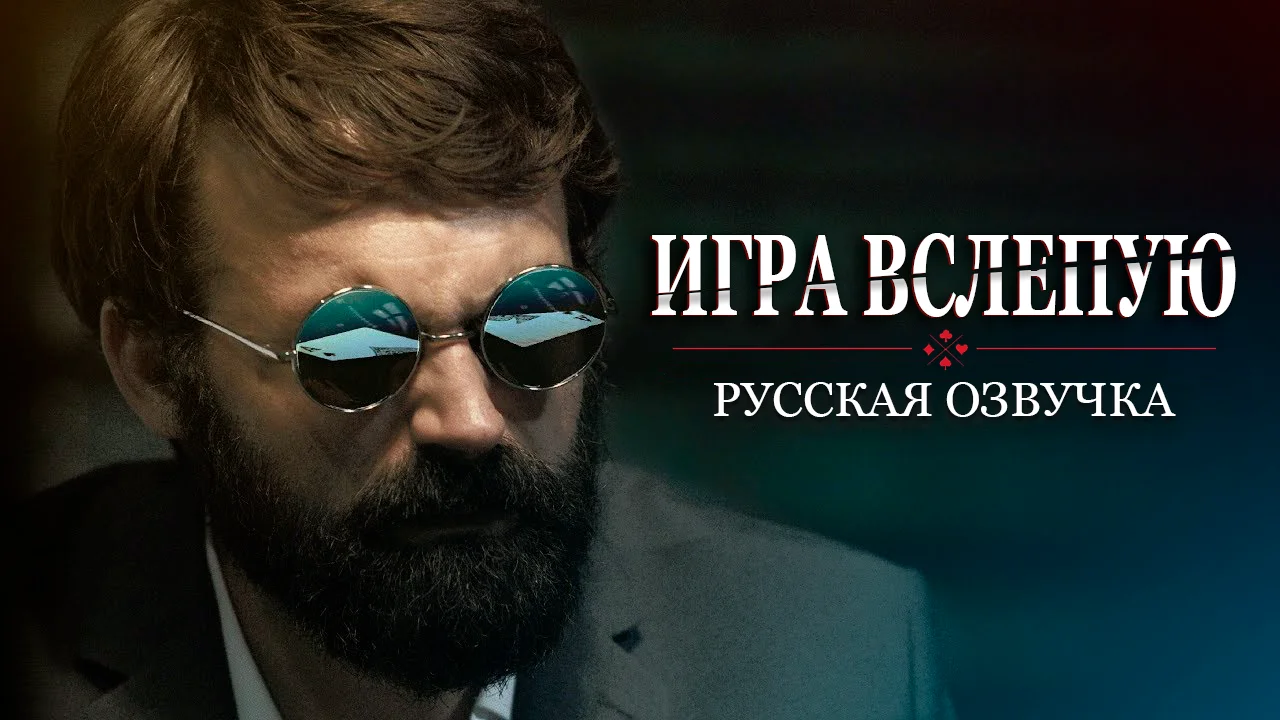
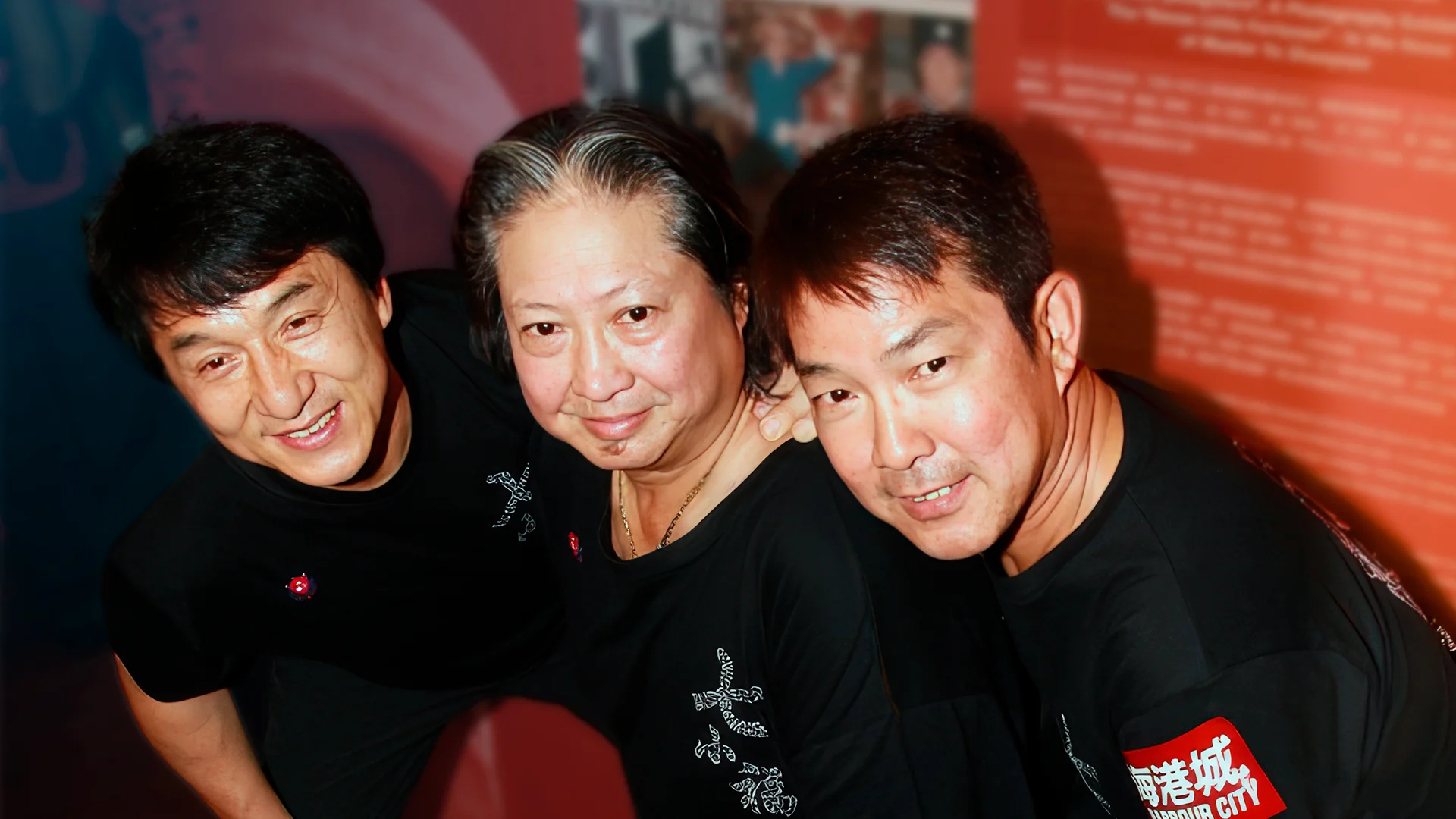
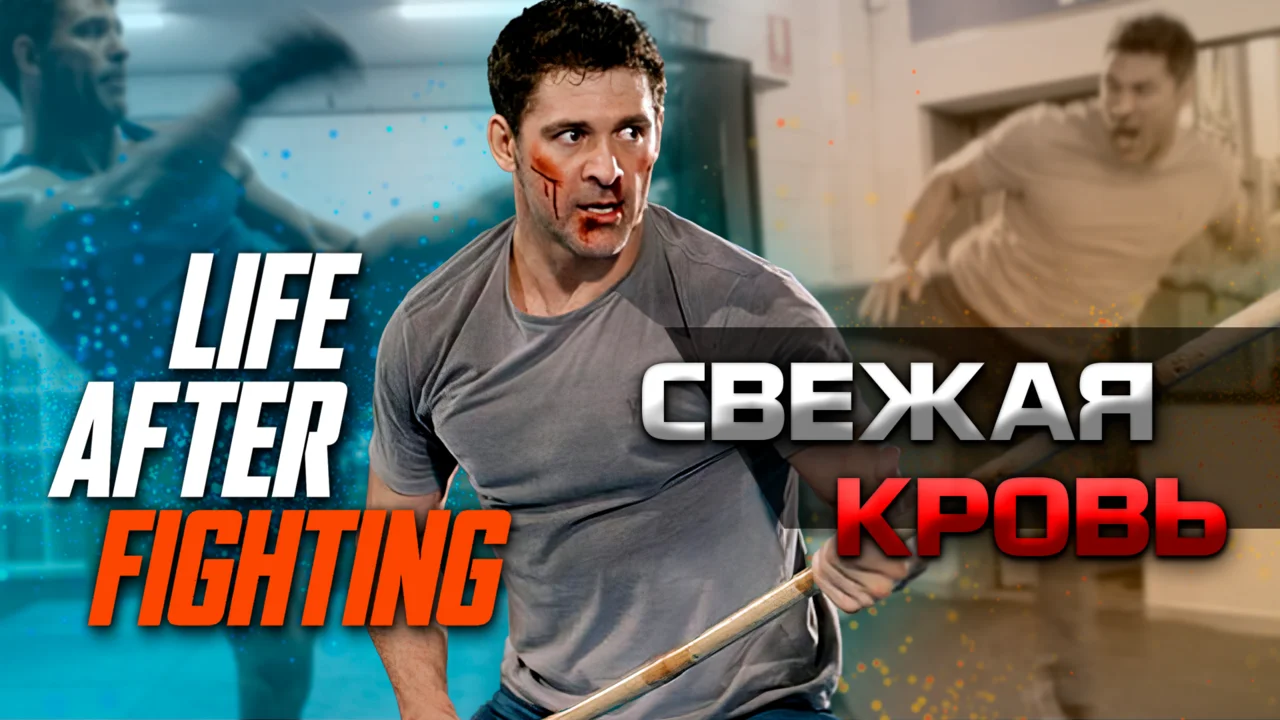
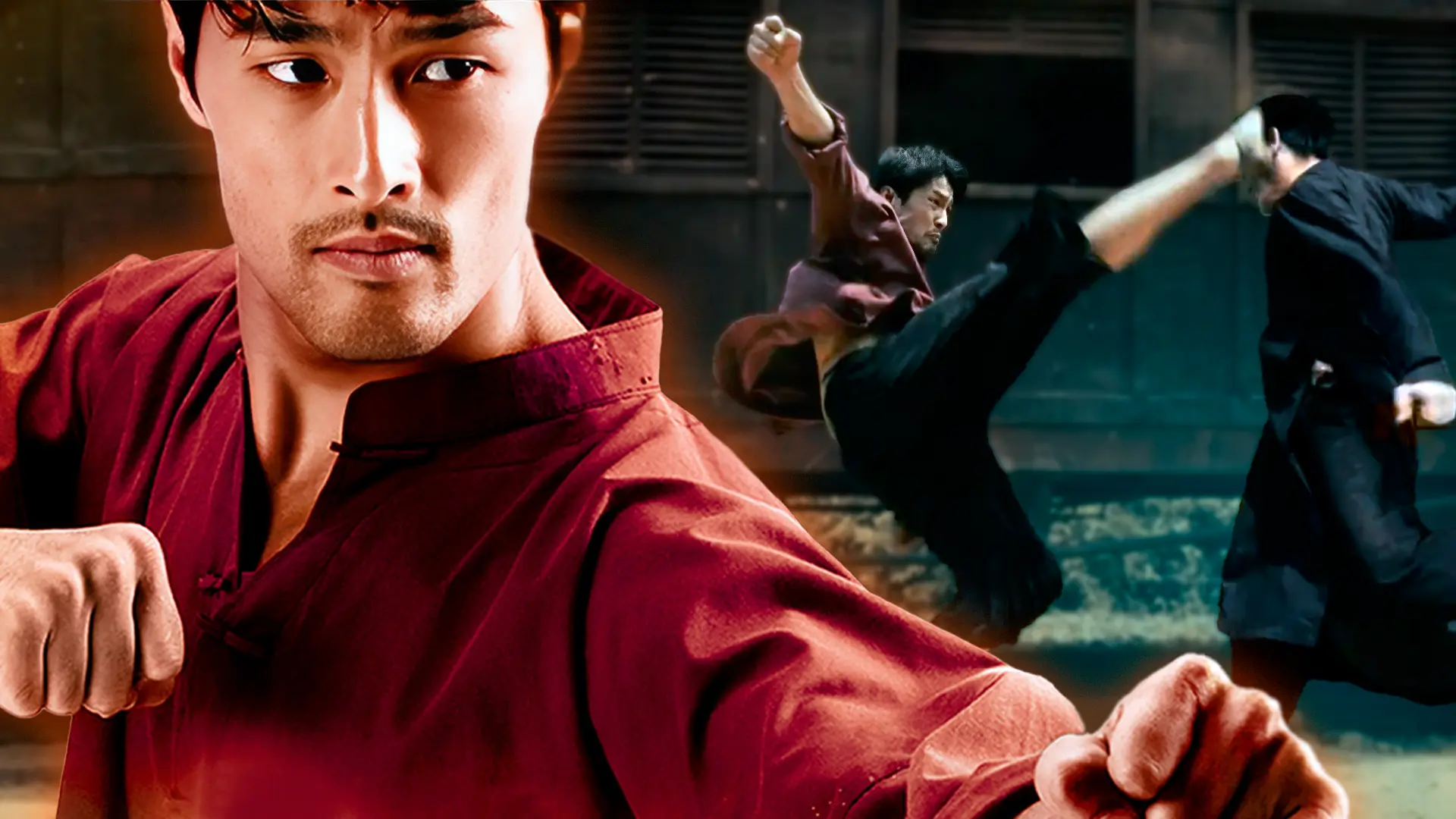
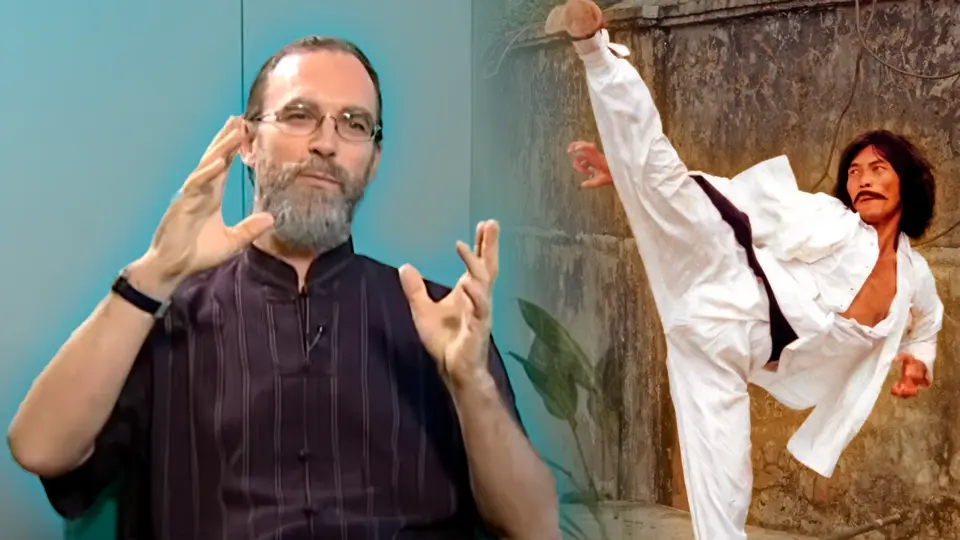
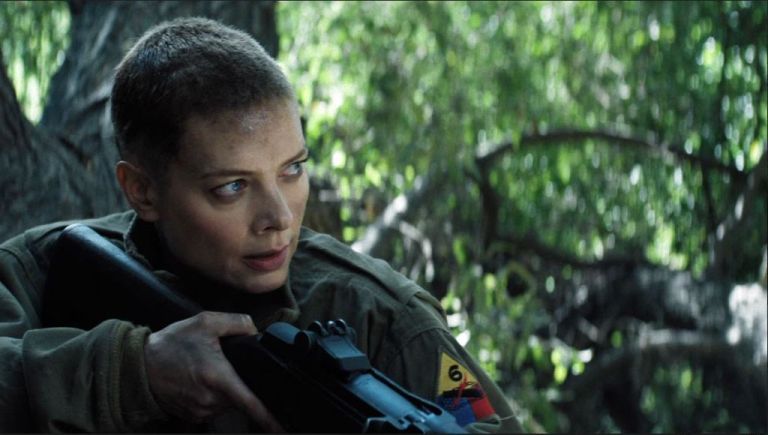
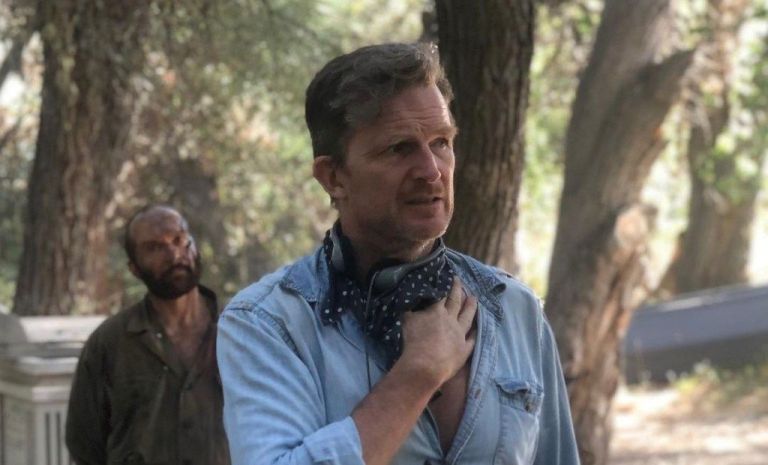
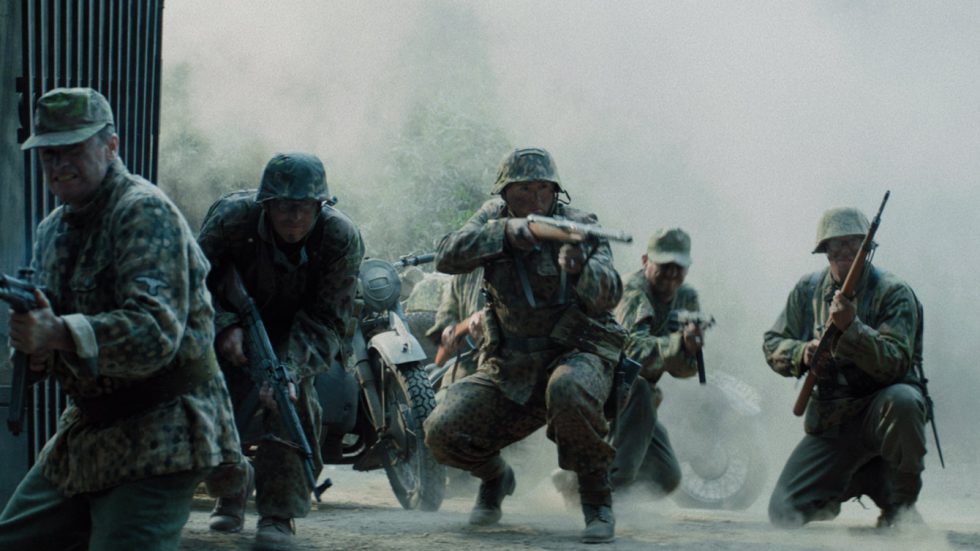
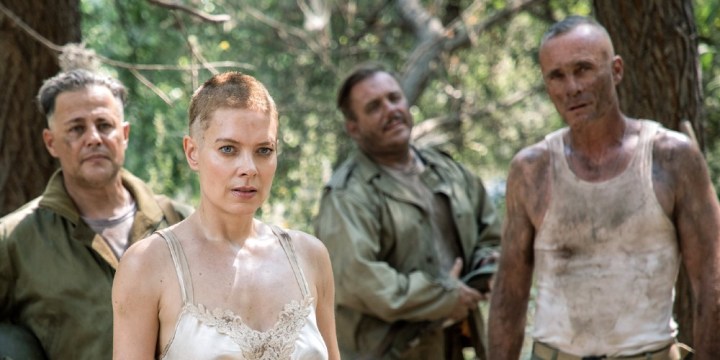
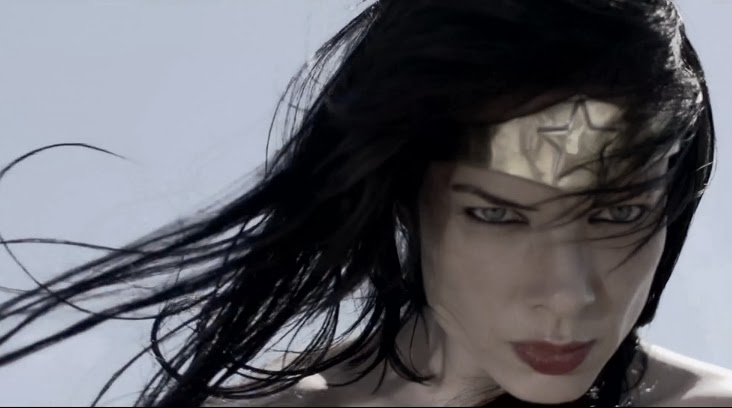
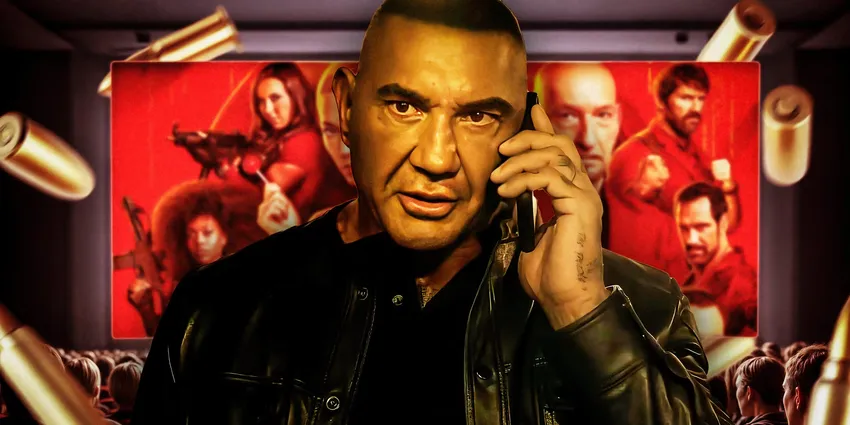
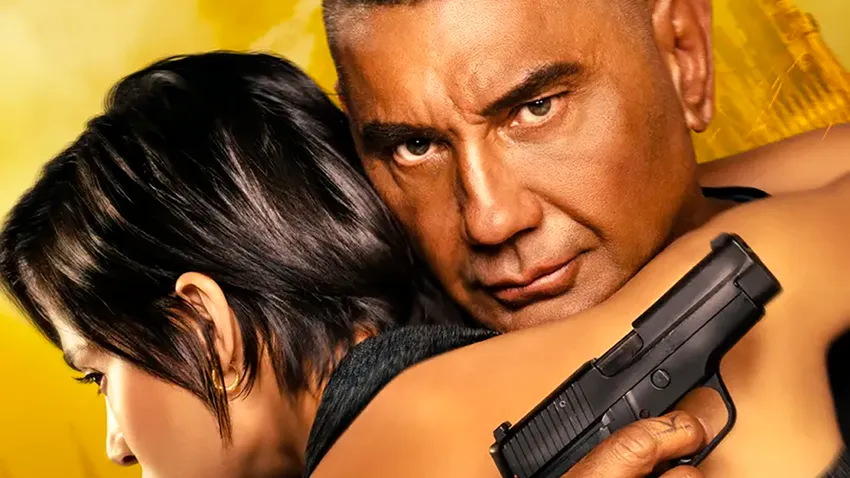
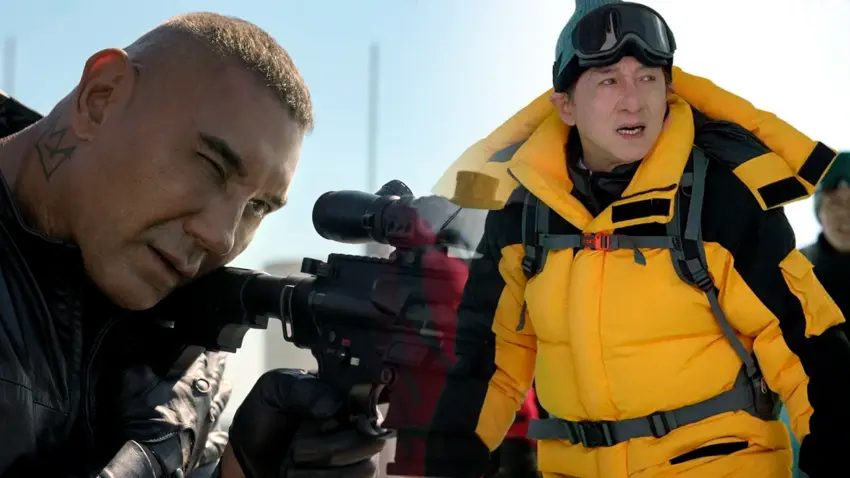
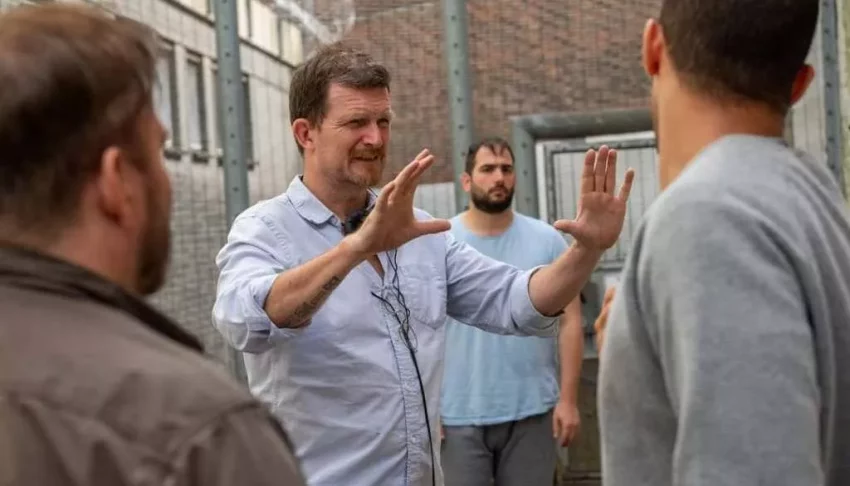
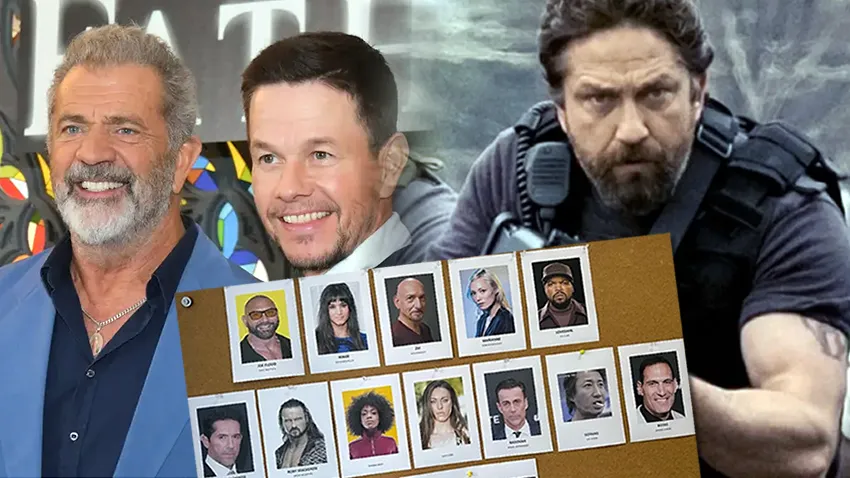
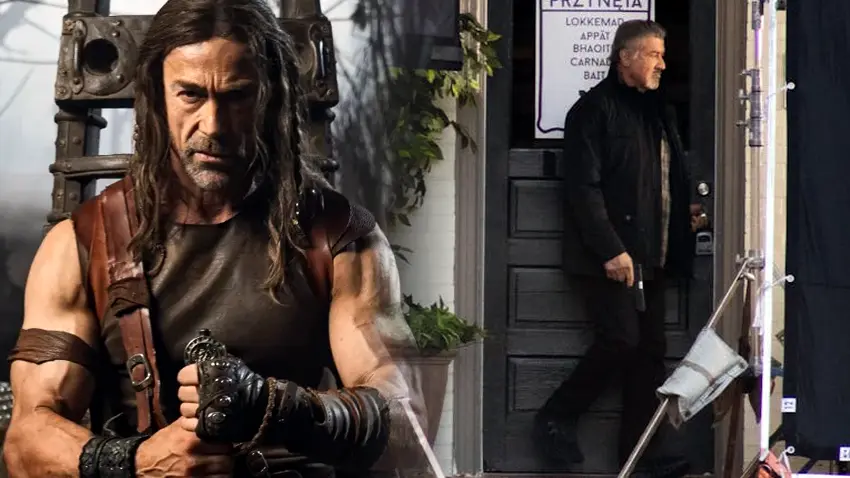
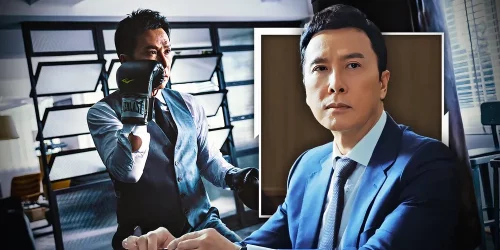
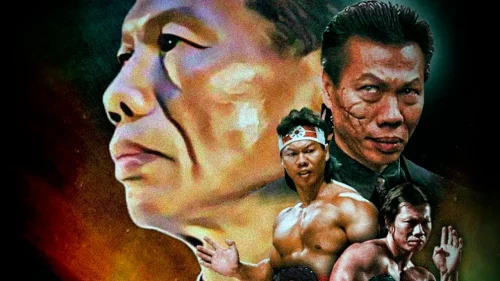
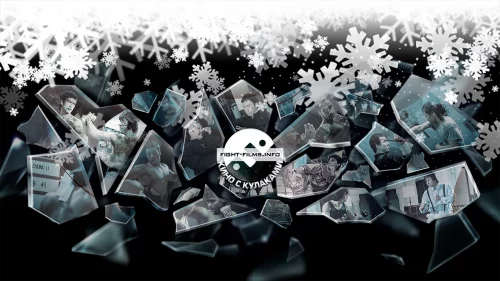
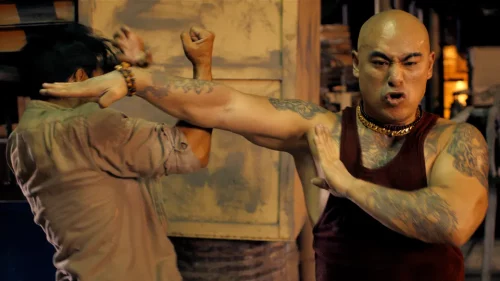
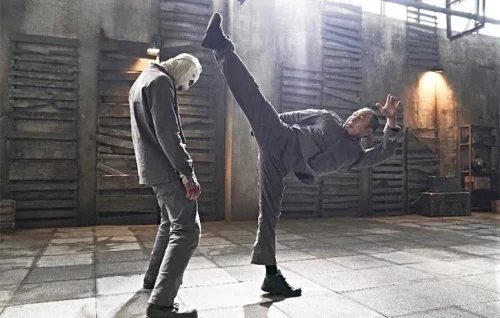
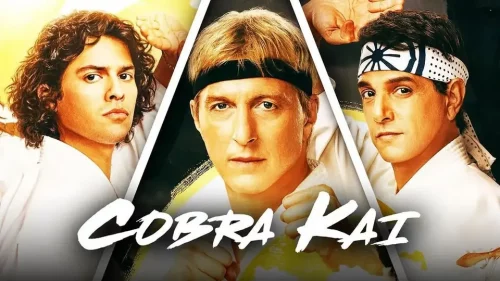
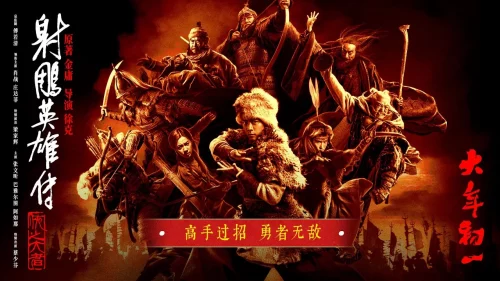
Огромное спасибо за перевод такого здорового по размерам и здоровского по содержанию интервью!
Данил Чупахин,
Пожалуйста! Интервью с Джошем Мэйби тоже уже в работе.
Black Dragon,
А еще как время будет, там же интервью Лундгрена появилось по случаю выхода "Падения замка" -> https://kungfukingdom.com/interview-with-dolph-lundgren/
Данил Чупахин,
Хорошо, занесу себе в список.
Black Dragon,
Это отличные новости!